In Part 2 (Read Part 1 here) of our exploration of Patrick Lencioni’s Six Types of Working Genius, we dive deeper into how this model helps teams rework their teamwork models and regain team productivity and efficiency—especially in fast-paced environments like New York City.
NYC Team Productivity: A Day in the Life
How does the Working Genius model work, practically speaking?
Imagine a hypothetical NYC-based team working on a project. All six types of working geniuses are equally represented and actively contributing, and the team leader ensures that all three stages—Ideation, Activation, and Implementation—are used.
Here’s how the team meeting might proceed—
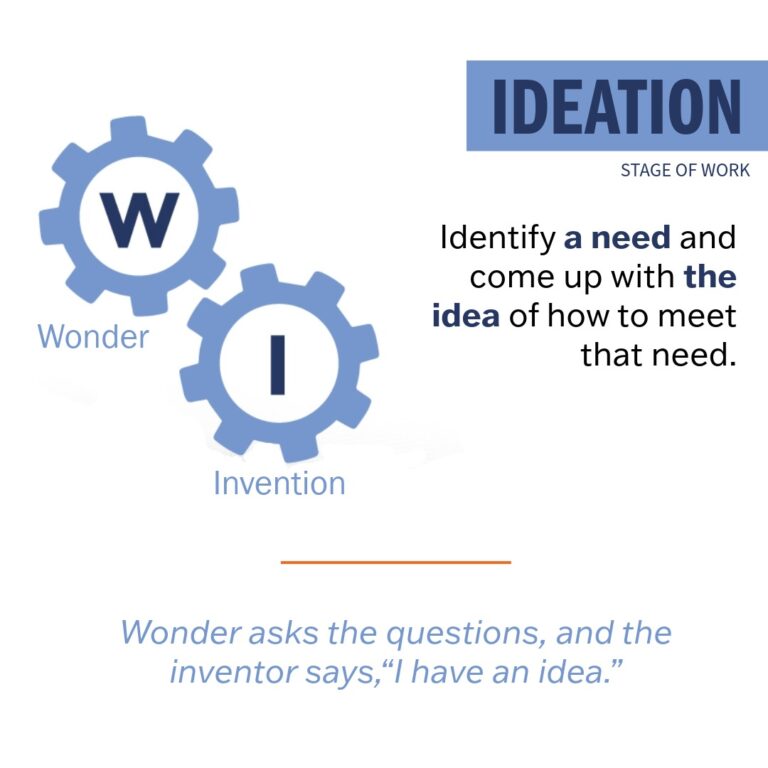
Ideation Stage: Wonder and Invention in Action
Wonder:
The team starts with questions like, What can we do better? or Is there a new way to solve this problem? This gets everyone thinking about necessary improvements and opens up true curiosity. Those with the genius of Wonder have a forum for their world-changing questions.
Invention:
Next, it is brainstorming time! Everyone shares their creative ideas, no matter how “outside-of-the-box” they might seem. Team members build on each other’s thoughts to produce a number of possible solutions. The Inventors get to be as constructively imaginative as they want.
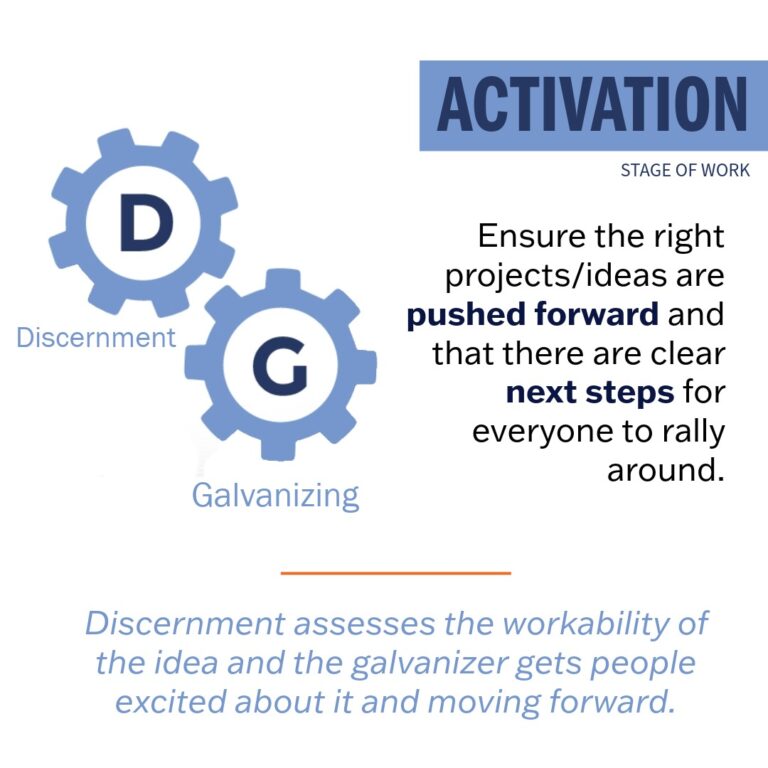
Activation Stage: Discernment and Galvanizing for Momentum
Discernment:
Now, the team considers all the ideas on the table and chooses the best, most realistic, and impactful ones to work on now. The team’s Discerners will add to, subtract from, and tweak the new ideas to achieve workable plans.
Galvanizing:
Once the best ideas are discovered, the motivators in the group can come to the forefront to create excitement, set goals, and ensure commitment to the plan. Get ready, Galvanizers, to inspire the team to great heights of achievement!
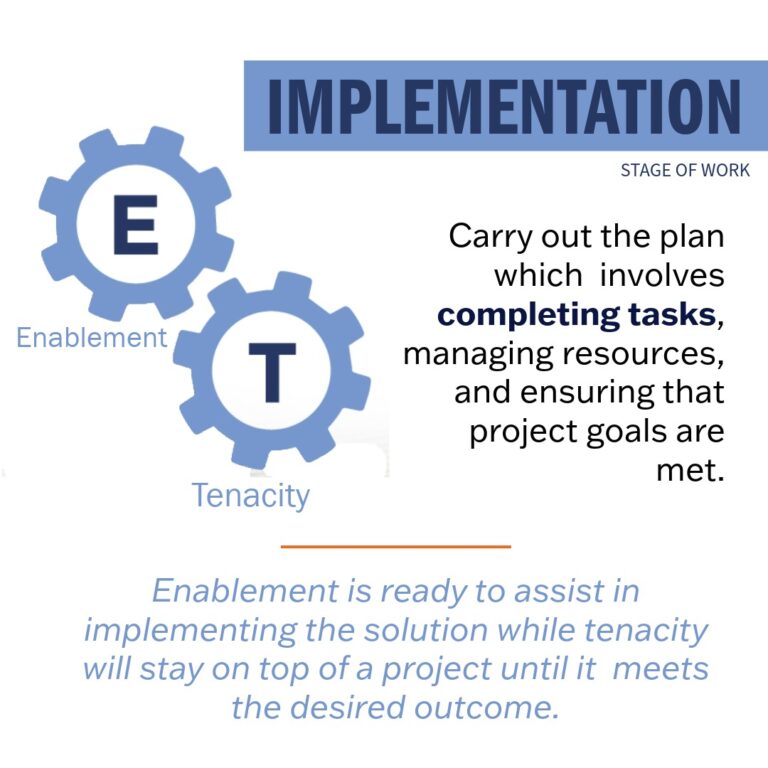
Implementation Stage: Enablement and Tenacity for Results
Enablement:
At this point, the team can discuss the practical details, ensuring the correct tools and resources are available. Tasks and roles are assigned to each team player to bring the plan to life. Those gifted with Enablement are eager to cheerfully help the entire team reach the goal.
Tenacity:
In the final stage, the team strategizes staying on track despite possible obstacles. Team members will be tasked with measuring progress, staying on time and budget, and clearing the way. Tenacious teammates will make sure every box is checked on the way to the finish line.
Integrating a Team’s Genius into a Powerful Teamwork Model
The Six Types of Working Genius offer a framework for understanding and leveraging individual strengths within a team. By embracing the three stages of work, teams become more engaged and productive.
Jonathan’s Story Continued: Building a Culture of Team Genius
Our friend, Jonathan, eventually opened his own custom construction company just outside of NYC.
Based on his earlier experiences, he and his company’s hiring managers were proactive in bringing on talented team members who understood how to be great team players.
The firm built on this strong start by providing each employee with professional development opportunities that bolstered the entire team.
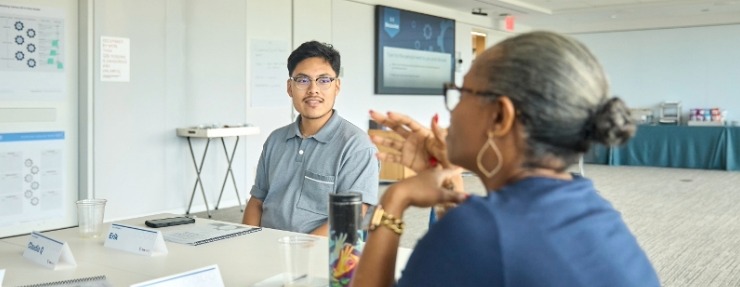
Building and Empowering a Strong Team
Every new hire learned about their working genius during onboarding and was empowered to contribute meaningfully. The model became part of the company’s culture—fueling innovation, boosting morale, and improving customer satisfaction.
The concepts of Working Genius were intentionally part of casual conversations and formal meetings on a regular basis—as part of the organization’s shared cultural language of teamwork and respect.
Jonathan’s employees even found themselves talking with their families and friends about their geniuses and how functioning daily in their areas of genius made workdays truly enjoyable.
In fact, the Working Genius model led to better team work overall at Jonathan’s company—and was especially evident during team meetings—as each team member’s gifts were consistently welcomed into the discussion and into their everyday work.
Innovative ideas flowed freely, and the best ones eventually became reality, all through the process of moving from Ideation to Activation to Implementation.
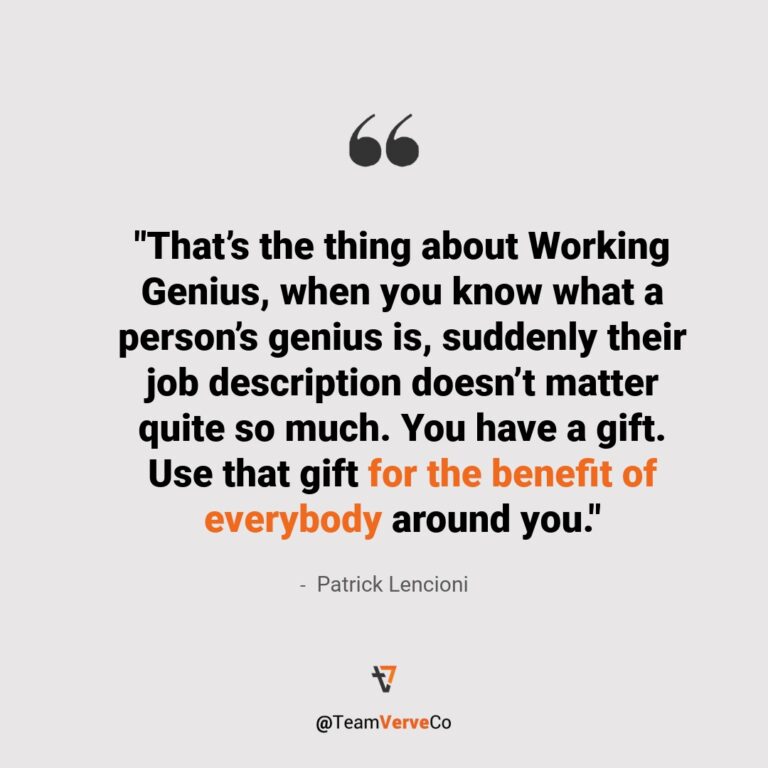
The Impact of a Well-Structured Process on Team Productivity
By intentionally applying the three stages of work, Jonathan’s team saw…
- Fewer delays and frustrations
- Stronger collaboration and morale
- Improved project efficiency and client satisfaction
- A shared language for solving challenges
High-fives became commonplace in the office and on job sites.
The field crews felt more engaged and motivated, knowing they were part of the entire process, not just the execution phase.
The sales reps were confident that the products they were selling could and would be delivered.
The designers were excited to see their plans come to life, and everyone on the team was enthusiastic about hearing from happy clients that the job was done well and on time.
Preparing for New Opportunities
Jonathan’s company continues to grow and serve his community. Lately, both he and his team have noticed they are running out of new ideas, making it tough to keep up with current market trends. He feels like the company might be getting stuck in a rut, just when they need to adapt to industry changes in order to stay relevant and serve customers well.
He is now focused on hiring team members with the Wonder and Invention geniuses to reignite the ideation phase, which had been waning in his company until recently.
He keeps a copy of Lencioni’s article in his desk drawer as a reminder that all six types of working genius are necessary on a team, and empowering team players to excel at their geniuses can create exponential growth opportunities for a company and a community.
Ready to boost your NYC team’s productivity?
Explore how our Working Genius workshops can help you build a high-performing teamwork model that leverages every team member’s strengths. Let’s unlock your team’s full potential—starting today. Chat with Matt.
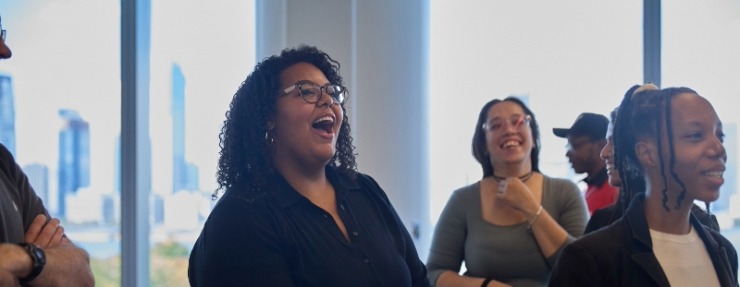

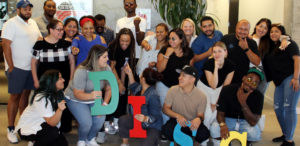

Pingback: Team Productivity Unlocked: Refining Your Teamwork Model, Part 1 - Team Verve